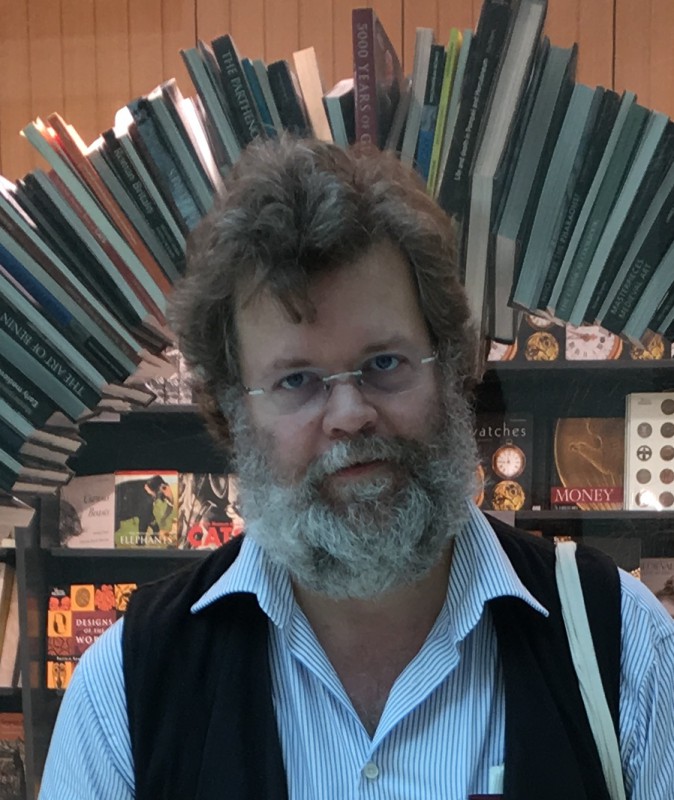KLI Colloquia are invited research talks of about an hour followed by 30 min discussion. The talks are held in English, open to the public, and offered in hybrid format.
Join via Zoom:
https://us02web.zoom.us/j/5881861923?omn=85945744831
Meeting ID: 588 186 1923
Spring-Summer 2026 KLI Colloquium Series
12 March 2026 (Thurs) 3-4:30 PM CET
What Is Biological Modality, and What Has It Got to Do With Psychology?
Carrie Figdor (University of Iowa)
26 March 2026 (Thurs) 3-4:30 PM CET
The Science of an Evolutionary Transition in Humans
Tim Waring (University of Maine)
9 April 2026 (Thurs) 3-4:30 PM CET
Hierarchies and Power in Primatology and Their Populist Appropriation
Rebekka Hufendiek (Ulm University)
16 April 2026 (Thurs) 3-4:30 PM CET
A Metaphysics for Dialectical Biology
Denis Walsh (University of Toronto)
30 April 2026 (Thurs) 3-4:30 PM CET
What's in a Trait? Reconceptualizing Neurodevelopmental Timing by Seizing Insights From Philosophy
Isabella Sarto-Jackson (KLI)
7 May 2026 (Thurs) 3-4:30 PM CET
The Evolutionary Trajectory of Human Hippocampal-Cortical Interactions
Daniel Reznik (Max Planck Society)
21 May 2026 (Thurs) 3-4:30 PM CET
Why Directionality Emerged in Multicellular Differentiation
Somya Mani (KLI)
28 May 2026 (Thurs) 3-4:30 PM CET
The Interplay of Tissue Mechanics and Gene Regulatory Networks in the Evolution of Morphogenesis
James DiFrisco (Francis Crick Institute)
11 June 2026 (Thurs) 3-4:30 PM CET
Brave Genomes: Genome Plasticity in the Face of Environmental Challenge
Silvia Bulgheresi (University of Vienna)
25 June 2026 (Thurs) 3-4:30 PM CET
Anne LeMaitre (KLI)
KLI Colloquia 2014 – 2026
Event Details

Topic description:
Where does novelty come from? The ability to innovate (i.e., to generate novel features or behaviors) is a defining characteristic of evolving and complex systems, and as such has been the subject of many research efforts. Biological, technological, socioeconomic, political and cultural transformations all presuppose that at some point in time “novelties” occur. Are there commonalities in the underlying processes generating novelty across domains? The possibility that such commonalities exist, and that they can form the basis of a theory of invention based on these common features, has been the topic of several recent theoretical proposals. In this talk I will summarize these attempts and focus especially on the role of regulatory networks in governing innovation processes. Understanding how regulatory structures affect the ability of systems to innovate or to respond to specific new challenges is important for all attempts to steer social, technological or economical systems into specific directions. Furthermore, understanding the role of regulatory structures also helps us to see the limits to innovation. This is especially important in light of a dominant paradigm that sees innovation as the answer to many societal challenges. This talk will address the following questions, starting from biological systems but with the goal to reach more generally applicable insights:
- What constitutes novelty? How can it be recognized? Formally described? Quantified? Compared?
- What are the necessary conditions for a system to invent?
- What sort of formal description (theory of novelty) could be developed that would encompass invention across domains?
Biographical note:
Manfred D. Laubichler is President’s Professor of Theoretical Biology and History of Biology at Arizona State University and a Professor at the Santa Fe Institute. He is director of the Global Biosocial Complexity Initiative at ASU and a member of the Scientific Advisory Board of the KLI and the Complexity Science Hub Vienna.


